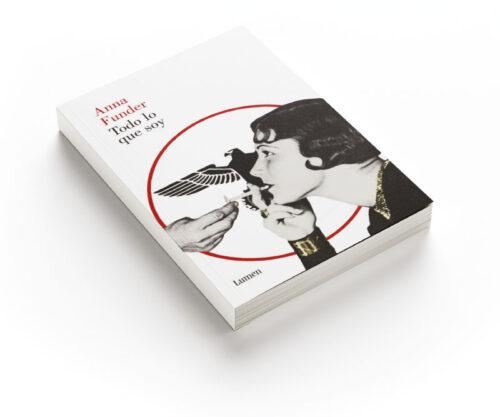


Cut to spring, 1940: Viann has said goodbye to husband Antoine, who's off to hold the Maginot line against invading Germans. This trajectory is interrupted when she receives an invitation to return to France to attend a ceremony honoring passeurs: people who aided the escape of others during the war. In 1995, an elderly unnamed widow is moving into an Oregon nursing home on the urging of her controlling son, Julien, a surgeon. Hannah’s new novel is an homage to the extraordinary courage and endurance of Frenchwomen during World War II. The disquieting historical facts entwined by themes of love and betrayal are powerful enough to make up for flat-footed storytelling. Some find adapting to expatriation harder than others, and one becomes a traitor to the cause. Soon Ruth and Hans find themselves in London with Dora, Ernst and numerous other Germans trying to raise the alarm about Hitler. Dora is arrested briefly, but it is Ernst the authorities want. Then the burning of the Reichstag occurs. Life as an anti-fascist in late 1920s and early ’30s Berlin is a heady mix of idealism, passion and drinking. Toller, scarred by his wartime and prison experience, suffers bouts of serious depression. He wants to marry Dora, but she is a committed feminist who refuses to be tied down. When Toller leaves prison, where he has managed to write his well-loved plays, Dora becomes his secretary and passionate lover.

Among the pacifists and socialists working to gain his release is Ruth’s older cousin Dora. While visiting Dora, 18-year-old Ruth falls deeply in love with journalist Hans Wesemann, whose courageous satirical articles make vicious fun of Hitler and his cronies. Toller, a decorated soldier during World War I, has been imprisoned for his pacifist activism. Ruth and Ernst’s paths cross in the 1920s. Both narrators are historical figures, as are almost all the “characters” in the book, despite a few name changes.

In 1939 Manhattan, Ernst Toller, a world-renowned playwright and human-rights activist, holes up at the Mayflower Hotel where he dictates to his secretary the events that happened six years earlier. In 2001 Australia, as her short-term memory fails along with her health, Ruth Becker remembers back 70 years to her early adulthood in Germany and England. The author uses an unnecessary framing device, having two of the dissidents tell their sometimes-overlapping versions of events. Funder follows her critically acclaimed nonfiction debut ( Stasiland: Stories from Behind the Berlin Wall, 2003) with the novelized account of German activists who opposed Hitler before World War II.


 0 kommentar(er)
0 kommentar(er)
